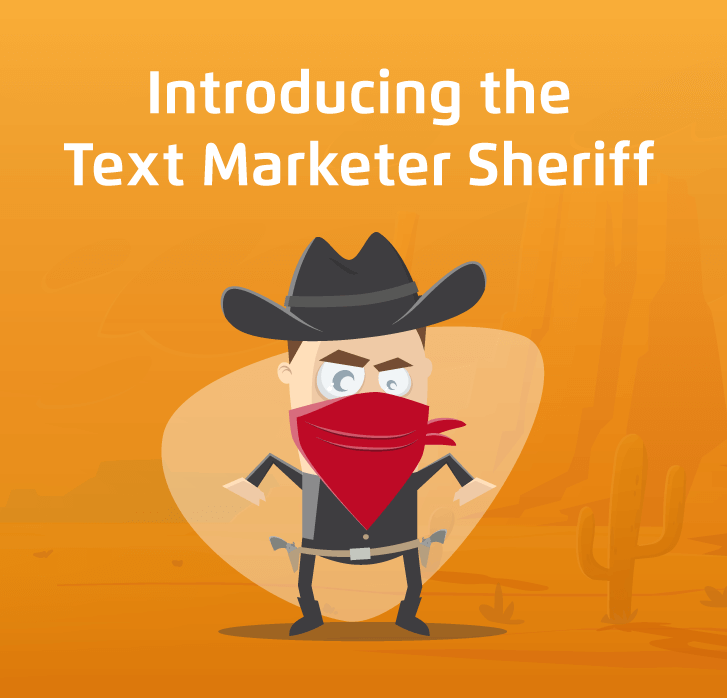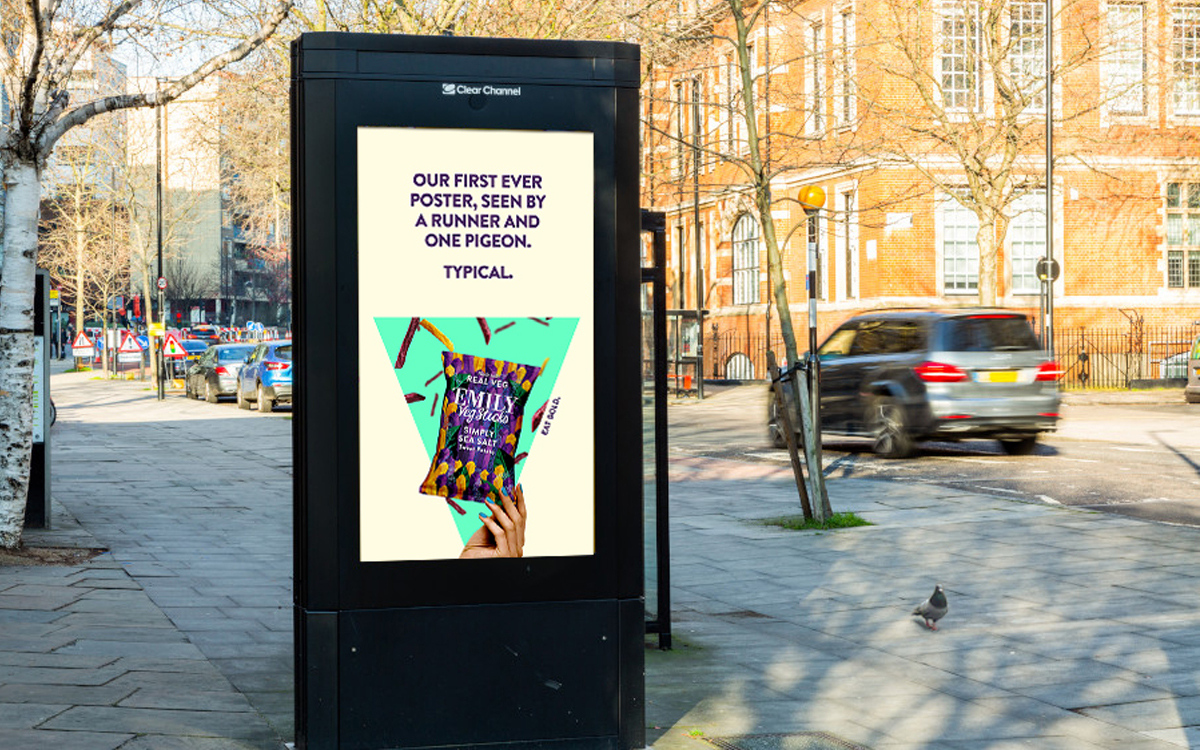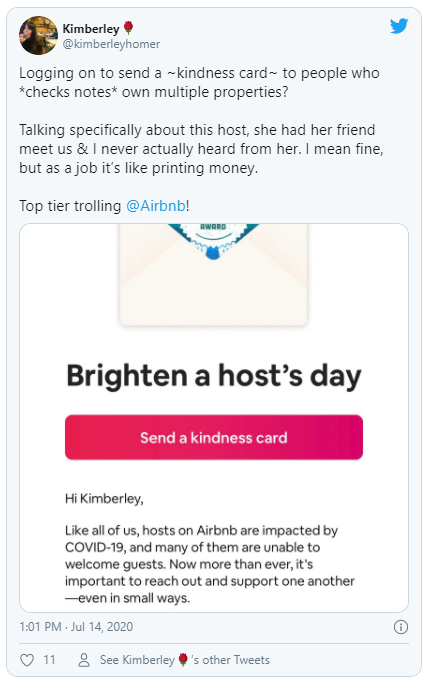Marketing during and after the immediate coronavirus crisis, has been difficult to navigate. Rapidly changing consumer behaviour and government guidelines, presented marketers with some challenges. Be sensitive, but be funny. Reference the situation, but not too much. Show you care, but in a different way to every other brand already overcommunicating with their customers. In truth, for many brands it’s probably felt a bit like a minefield.
So, to celebrate this rather awkward time coming to an end (fingers crossed), we’re going to take a look at 3 examples we believe truly represent the good, the bad and the ugly of marketing campaigns from during lockdown, and what we can learn from each one.

The Good
Now this easily could’ve been KFC’s ‘We’ve missed you’, but, well, we’ve already spoken about it and there are only certain topics we like to repeat *cough* humble SMS *cough*. So instead, The Good is Emily’s outdoor campaign from April.
Emily’s had booked an outdoor campaign, a first for their company, hoping to target individuals around the Easter bank holiday. However, as you know, April 2020 was a little different to planned. The original campaign was centred around encouraging consumers to ditch the usual, ‘dull’ crisps, and instead try a bag of Emily’s. But, the company was concerned it may look as if they were making light of the situation and implying that lockdown was dull. As opposed to cancelling, they decided to continue with the outdoor advertising as planned, but showcase a completely fresh campaign. In less than one week, their marketing team and creative agency created a new concept whereby the brand poked fun at itself, with advertisements donning the following comments:
‘Our first ever poster, seen by a runner and one pigeon. Typical’
‘Hmmm… maybe we should have made a TV ad instead’

The campaign was humorous without making light of the situation and unsurprisingly, the few eyes that did see the campaign, shared it online and the results were very positive.
Lesson #1
If circumstances change and a campaign no longer feels appropriate, change it. As Adam Draper, Nurture Brand’s managing director said to Clear Channel (the company responsible for the outdoor advertising), –
“I don’t want my money back, I just want to make sure it works for us”.
So whatever the campaign, make sure it works for your business. Even if that means changing the entire concept last minute.
The Bad
Now perhaps bad is a little strong. It was just a little awkward. But unfortunately the good, the awkward and the ugly isn’t quite as well known… so, The Bad is British Airways’ ‘Dear Britain’ advert. The TV advertisement ends with them saying ‘we love you Britain’, not once, not twice, but three times. Admittedly the vast majority of flights were grounded at the time, so we imagine creating any effective air travel campaign would’ve been hugely difficult, but still. We just feel they missed the mark a little, and well, we’re not the only ones.
Lesson #2
If your brand doesn’t have an angle that naturally fits with a given trend, in this case, the ‘we’re all in it together’ more empathetic mood of the country, then do something else or do nothing at all. You don’t need to jump on every trend. Do what feels true to the brand and relevant to your target audience, even if that means missing a few ‘opportunities’.
The Ugly
We saw this particular marketing campaign blow up online and not in the good way, in The Ugly way. Airbnb’s ‘Kindness card’ campaign, sent an email to guests asking them to write a digital comment card with an encouraging message to Airbnb hosts, with the option to add a monetary donation.
Consequently, this left the company in hot water with customers, with many asking why they would donate money to individuals who often own multiple properties, especially when they themselves are struggling. It’s worth noting that the company did say that hosts could choose to pass on these monetary donations to a charity of their choice, but well, to the left is just one tweet of many following the campaign.

Lesson #3
Know your audience! We appreciate that Airbnb was simply trying to support their network, but read the room. A simple campaign targeting those who want a change of scenery which doesn’t involve DIY, would’ve likely been received far better. As Mark Ritson states – “Customers’ benevolence won’t keep brands alive – we serve them, not the other way round”.
In short, brands always need to offer value to their customers and post-Covid19, things are no different.
Speaking of value, if you would like to see how amazing and easy to use our online SMS platform is, why not sign up for a free account and get 10 free credits to trial the platform, with absolutely no obligation to continue afterwards.
